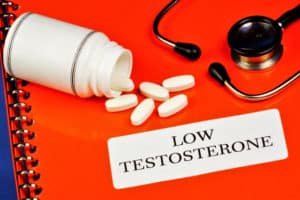Wondering about Low T?

An Intro to Low T
It is understood in the medical community that most men will experience a gradual decline in testosterone as they age. During the teen years, testosterone production is robust. By mid-adulthood, levels have regulated to a degree at which a man is more capable of managing his aggression and sexuality. By middle age, levels may begin to decline at a relatively rapid pace and to such a degree that symptoms begin to develop.
What constitutes low testosterone?
Low testosterone is generally defined as a significant or sudden drop in this hormone. But what does that look like? Clinically speaking, testosterone levels may vary from 300 to 1000 ng/dL. Laboratory results from bloodwork that measure less than 300 ng/dL usually indicate low testosterone. Well before lab work confirms this, patients typically have some idea that their energy and vitality are not what they’d like. Men may experience a variety of symptoms as a result of lower testosterone levels. Erectile dysfunction may be the most well-known. In fact, some men may use that as the one and only marker. But there are others.
Symptoms of low testosterone include:
- Decreased sex drive
- Low semen volume
- Decreased testicle size
- Hair loss
- Increased body fat
- Loss of muscle mass
- Decreased bone mass
- Mood changes
- Memory problems such as difficulty recalling events
- Fatigue
Why Do Men Develop Low T?
Age is by far the most significant factor in low testosterone levels. Additional factors that can contribute to this condition include the use of opioids or certain antidepressants, obesity, and metabolic conditions like high blood pressure.
Low testosterone may be a condition that affects men of a certain age, but that doesn’t make it normal. Your Chattanooga urologist can perform testing to measure your testosterone levels and, if needed, address this condition with optimization treatment designed around your physical needs. To schedule a consultation at UT Urology, contact us at (423) 778-5910.

